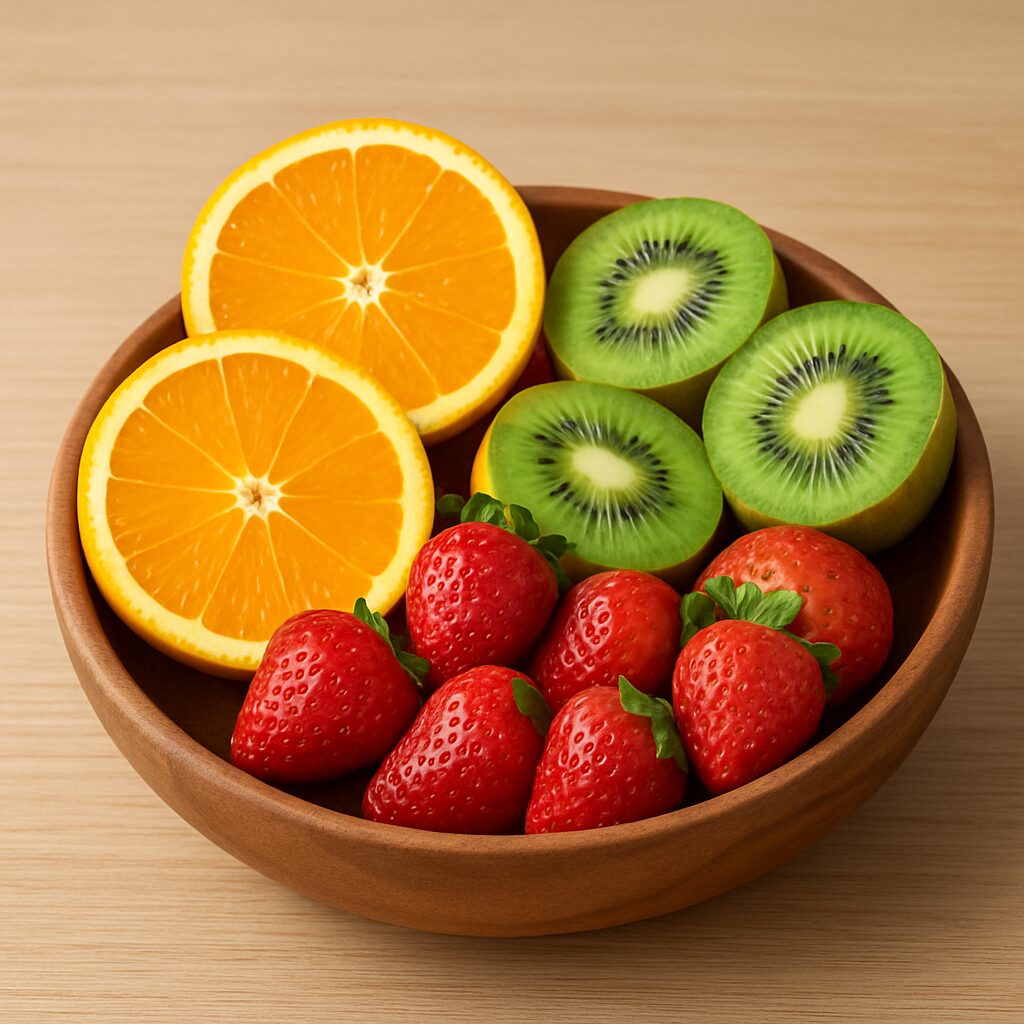Vitamin C, also known as ascorbic acid, is a water-soluble vitamin that the body cannot produce on its own. It may support immunity, collagen production, wound healing, and antioxidant defense. Because it is not stored in large amounts, daily intake through diet is essential. This article highlights the potential benefits of vitamin C, deficiency concerns, and practical ways to include it in meals.

1. Antioxidant Protection
Vitamin C functions as a strong antioxidant that may help protect cells from oxidative stress. Regular intake could contribute to reducing free radical damage and supporting healthy aging.
2. Immune Function
This vitamin supports white blood cell activity and overall immune defense. Adequate intake may enhance resilience against external challenges and assist with faster recovery.
3. Skin Health and Collagen Synthesis
Vitamin C is essential for collagen formation, which supports skin elasticity and wound repair. Consistent intake may help reduce fine lines and improve overall skin vitality.
4. Iron Absorption
Vitamin C may improve the absorption of non-heme iron from plant-based foods. This effect could help lower the risk of iron deficiency, especially in individuals with vegetarian diets.
5. Stress and Fatigue Reduction
By supporting adrenal function and antioxidant defense, vitamin C may help the body adapt to stress and reduce fatigue. Balanced intake could support sustained energy levels.
6. Cardiovascular Support
Vitamin C may promote vascular flexibility and circulation. Adequate intake could contribute to blood pressure balance and long-term heart health.
7. Brain and Cognitive Support
Vitamin C plays a role in neurotransmitter production. Proper intake may support focus, mood balance, and cognitive function while reducing oxidative stress in the brain.
8. Deficiency Concerns
Low vitamin C intake may lead to symptoms such as bleeding gums, fatigue, poor wound healing, and weakened immunity. Severe deficiency may cause scurvy, although this is rare today.
9. Excess Intake Considerations
High doses are generally excreted in urine, but excessive supplementation may cause digestive discomfort, diarrhea, or kidney stone risk. Moderation is recommended.
10. Food Sources
Vitamin C is abundant in citrus fruits, strawberries, kiwifruit, bell peppers, broccoli, tomatoes, and leafy greens. Eating them raw or lightly cooked may help preserve vitamin C content.
🌿
Vitamin C may provide antioxidant defense, immune support, collagen production, and cardiovascular balance. Consistent intake from fresh fruits and vegetables could promote vitality, while supplements may be useful when dietary intake is insufficient.
References and Further Reading
World Health Organization (WHO) – Vitamin C and Human Health
National Institutes of Health (NIH) – Vitamin C Fact Sheet
American Heart Association – Antioxidants and Health
※ This article is for general informational purposes only. Individual requirements may vary, and professional consultation is recommended before supplementation.